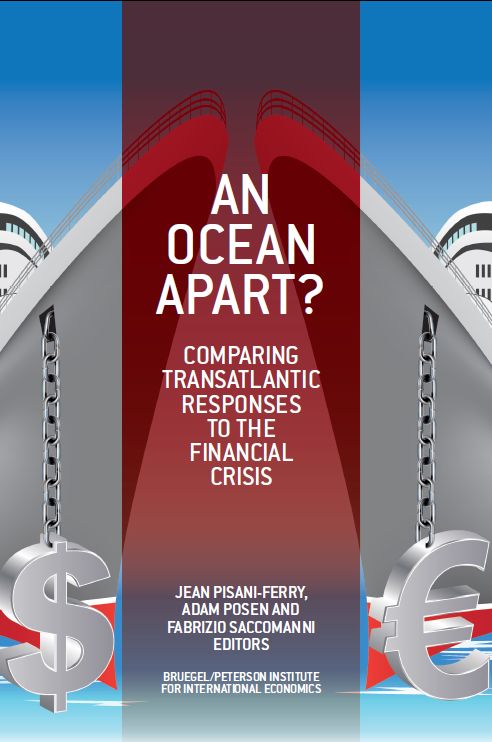Book/Special report
An ocean apart: Comparing transatlantic responses to the financial crisis
Has the EU-US relationship become a sideshow or is it still central to the global economy? Conflicting signals have been sent out since the outbreak of the global crisis. The creation of the G20 and its designation as ‘the premier forum for international cooperation’ suggest that attention and priorities have moved away from the traditional […]
Has the EU-US relationship become a sideshow or is it still central to the global economy? Conflicting signals have been sent out since the outbreak of the global crisis. The creation of the G20 and its designation as ‘the premier forum for international cooperation’ suggest that attention and priorities have moved away from the traditional G7 focus on the transatlantic economy. But most of the key policy debates of the last two years have retained a characteristically transatlantic flavour. This applies to the controversy about the pace of consolidation which resulted in an open US-German rift at the Toronto summit in June 2010; to the discussion on the new bank capital ratios which again was essentially a euro- American affair; and to the broader conversation on the priorities of financial regulatory reform, for which the big action agendas have been the US Dodd-Frank Act and the European endorsement of a blueprint for coordinated supervision and a single European macroprudential body.
True, other issues – the global rebalancing, or the creation of global financial safety nets – have had a distinctive G20 scope. But at least a fair share of the international debate has been transatlantic.
There are reasons for this state of affairs. To start with, what is known as the global crisis has been first and foremost a transatlantic crisis. As discussed in several contributions in this volume, the wake of the crisis financial integration through portfolio diversification essentially remained an EU-US phenomenon.
Accordingly the subsequent financial turmoil primarily affected the European and American financial systems, and other economies indirectly only, through trade or capital outflows. It is therefore natural to see the same two regions take the lead in setting the agenda for financial reform. Second, the problems they are facing in the aftermath of the shock – the travails of deleveraging, unemployment, the need for unconventional policy responses, the lowering of the growth potential, the rise of public debt, political pressures for protection – are largely common. Third, while they are not the main contributors to world growth, the EU and the US still constitute the bulk of the global economy, and what happens to them matters considerably for all.
The US and the EU however are not responding to the same shock in the same way and this is what makes the comparison interesting. It is telling that the sovereign debt crises developed in Europe in the first half of 2010 and triggered a move towards consolidation while the US fiscal situation is by most standards worse than the aggregate European situation. It is telling also that the priorities of financial reform have not been the same. Clearly neither the policy space nor the policy traditions are identical and this portends significant divergence across the Atlantic. How far this divergence will go and whether policymakers on the two continents will disagree or agree to disagree is one of the key questions for the future of the global economy in the years to come.
All this justifies a revival of the transatlantic economic conversation. The joint Banca d’Italia-Bruegel-Peterson Institute conference, held in Rome on 10-11 September 2009 with the support of the European Commission, aimed to contribute to the conversation through research and policy discussions. We hope that the papers collected in this volume will help foster a fact-based, analytically sound discussion.









